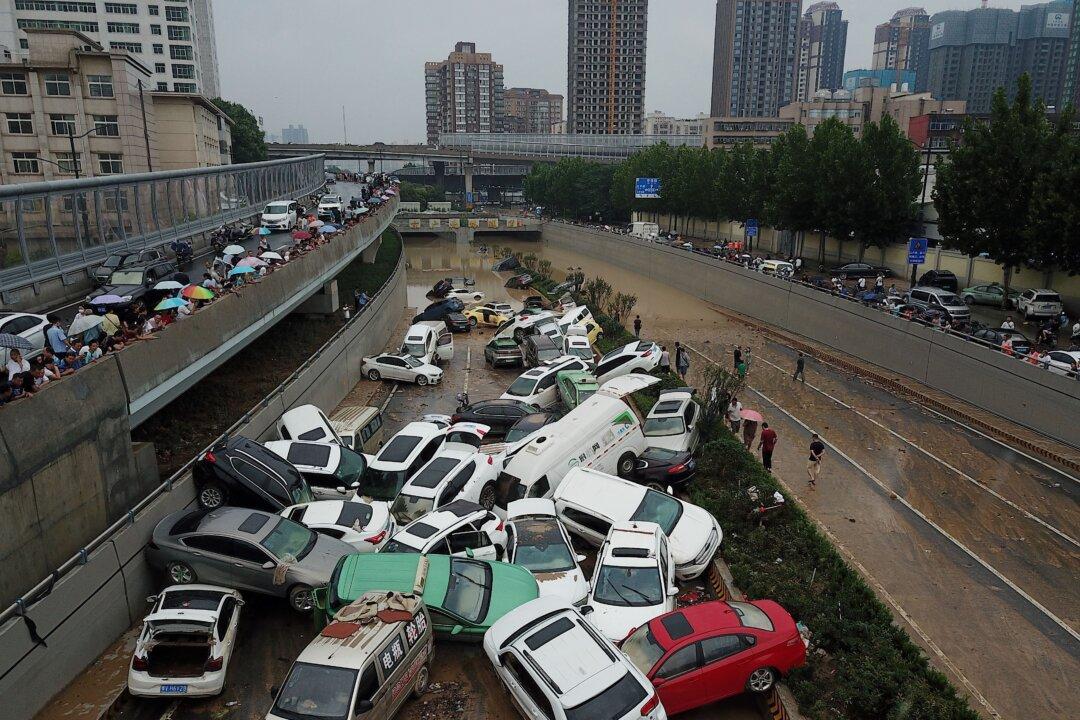Heavy rains are flooding cities in central China, leading to rising casualties and widespread destruction of property. Information about the disaster is increasingly difficult to come by, as the Chinese Communist Party (CCP) ramps up censorship of any content that it deems contains “negative energy.”
By July 22, the Chinese regime announced that 33 people have died from the flooding, with eight missing. But videos recorded by locals suggest much a higher figure. Chinese netizens, meanwhile, have taken to social media demanding the regime reveal the true death toll.





